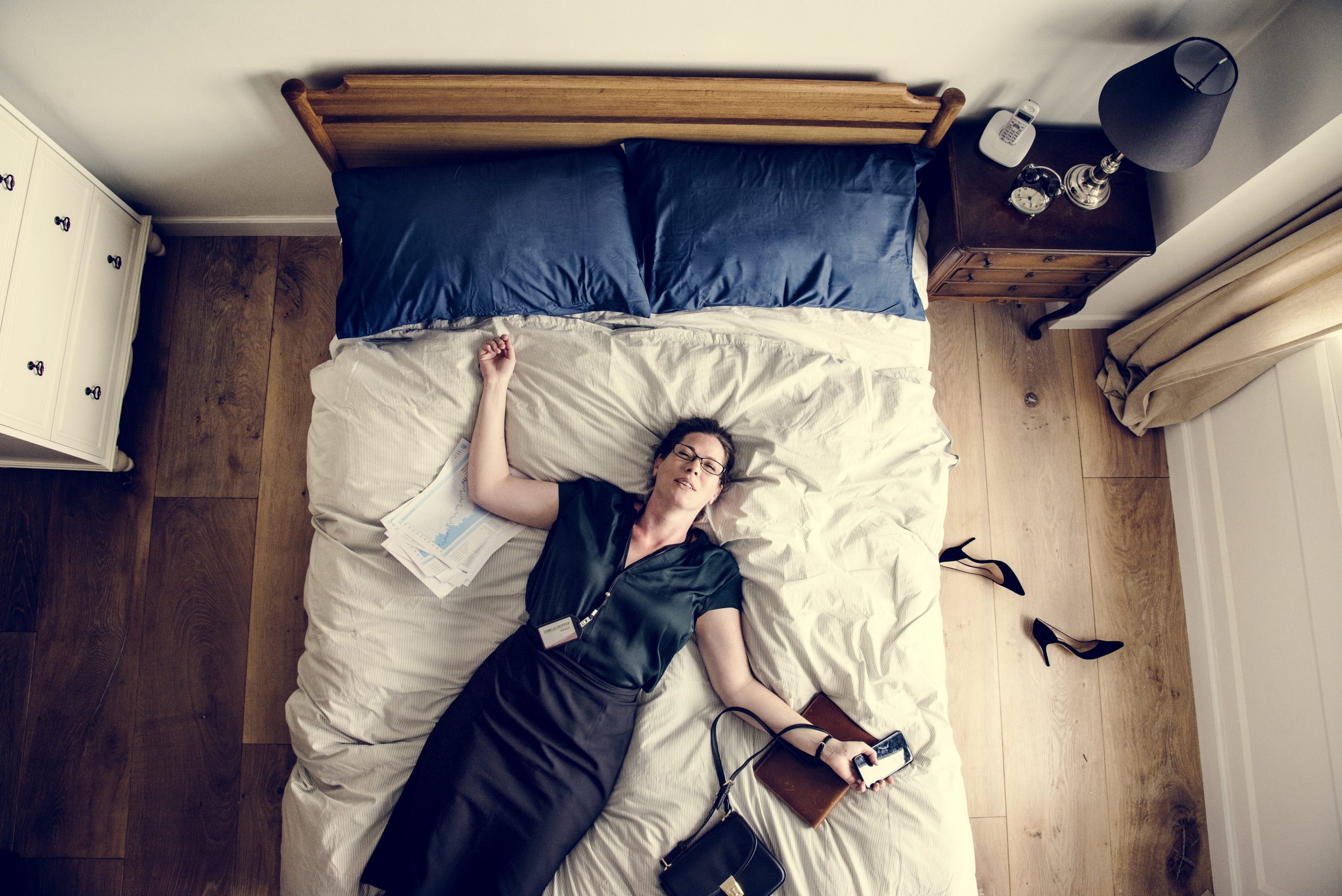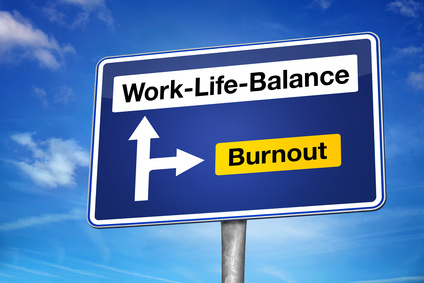Do you want to be successful? Listen to these 9 DON’Ts (2 of 3)
Do you want to be successful? Listen to these 9 DON’Ts!
In part 1 of this article read about the first three DON’Ts:
- Don’t leave things unfinished,
- Don’t allow technology to distract you
- Don’t dismiss other people’s thoughts or opinions.
Let’s get on with part 2.
4. Don’t allow yourself to burn out
Working to achieve your dream doesn’t feel like work. It’s easy for startup founders and new entrepreneurs to end up working long crazy hours into the night.
Building something from the ground up – a new product or service – is exciting and it gets the adrenaline pumping. Man or woman, young or in your forties, your body is flesh and blood, not steel. You cannot go on forever on little to no sleep, fast-food and working around the clock.
When your body gets tired, your mind follows closely. Developing the product, raising money, hiring valuable employees, dealing with the competition, questioning your decisions, fighting your inner critic etc is a highly stressful life day in and day out. Mental fatigue and depression are real and they are unfortunately widely spread among startup founders and entrepreneurs.

In a nutshell – experiencing physical and mental stress is the road to burnout.
In April 2018, KPMG Australia commissioned a study into entrepreneur wellbeing where 70 venture-backed founders were invited to answer questions.
The findings confirm what we already knew:
- Founders experience heavy workloads;
- The 64-hour week is the average among founders;
- 40 per cent of them said they had worked every day for the previous three months;
- 23 per cent could not remember taking three consecutive days off in more than a year;
- 80 per cent of founders wished they could spend more time with their friends or children;
- two-thirds were kept from spending as much time as they’d like with their partner or spouse;
- Most reported their work impacted their sleep and physical wellbeing;
- 43 per cent of founders were unhappy with their fitness level.
Ryan Holmes is the CEO of Hootsuite, the social media management platform he founded in 2008. In one of his articles on LinkedIn, Ryan talks about how he achieved work-life balance and avoided burnout. He recommends career interval training, a concept he borrowed from the fitness industry.
HIIT is a new concept of exercising which means alternating periods of intense activity with periods of rest or lower-intensity exercise.
Finding a balance is great but sometimes it just can’t be helped when you are trying to make a product work. It’s ok to put everything on hold, let your family know you won’t be available for a period of time and dedicate your days and nights to your work, says Ryan. But this can’t go on forever.
Much like HIIT (high-intensity interval training), career interval training means bursts of activity need to be offset by periods of rest and recovery.
As with interval training, intense, all-consuming stretches at work require real downtime to recover. And this is the step that’s too often missed. We go right from those all-nighters back into our normal work schedule. What’s really needed is an extended period away from the job — be that in the form of a few weeks vacation or even a longer sabbatical.
Ryan Holmes, CEO at Hootsuite
Balancing work life and home life can be tough, but getting drowned by your workload won’t help you achieve much of anything. Burnout impacts your company’s bottom line. Find a balance.
5. Never stop learning
You went to high-school than attended college or university. Maybe you liked learning and had high grades, maybe you found school boring and couldn’t wait to finish your formal education. The good news is – learning never stops.
Whether you are a new entrepreneur just starting out, keep learning. Even if you are an experienced entrepreneur, keep learning.

In the last decade, our world experienced more technological leaps than in the previous century. Our lives have dramatically changed in ten years’ time.
It’s a fact: technology is accelerating, says inventor and futurist Ray Kurzweil. In his book, ‘The Singularity is Near’, Kurzweil reminds us that smartphones didn’t exist a decade ago, no one owned a computer three decades earlier, and the first personal computers arrived about 40 years ago.
To put things in perspective, the iPhone in your pocket has over 100,000 times the processing power of the computer that landed man on the moon 50 years ago.
Formal education cannot keep up with our ever-changing and evolving world. It is a necessary foundation upon which to build our future. In school, we develop a vital skill – we learn how to learn and that we need to keep learning.
As a young boy, Elon Musk took refuge in reading. Talking about his childhood in one interview, Elon said he was raised by books – he would spend even 10 hours a day reading.
Bill Gates reads 50 books a year because reading is still the “main way that I both learn new things and test my understanding”, he said in a 2016 interview.
Whether it’s to develop a particular skill or acquire a new set of skills, keep learning. Go outside your interests and learn something new.
You might be surprised to find new ways that help you improve your performance or stimulate your creativity. Not so long ago, mindfulness and meditation were strictly associated with spiritual gurus. Today both mindfulness and meditation are two valuable techniques that support entrepreneurs achieve their goals.
6. Don’t listen to your inner critic
Do you ever think I’m not good enough, I won’t be able to perform, I will fail, I am a failure? This is your self-talk speaking negative thoughts.
Why is it that when we talk about a friend we find so many good and positive aspects, but when it comes to our own person, we are critical and judgemental?
The inner critic is a pattern of destructive thoughts toward ourselves. It can affect every aspect of our lives, including our self-esteem and confidence, our personal and intimate relationships, and our performance and accomplishments at school and work.

Read more – Self-awareness: 5 tactics to improve it
We all have that inner critical voice, but we need to acknowledge it through self-awareness and learn how to silence it.
Entrepreneurs, startup founders and professionals in every industry struggle with self-doubt and fear. These strong emotions are holding them back from being their best self and doing their best work.
Don’t allow your inner critic to dominate your life!
Bring down the imaginary walls that you have created in your mind and achieve your highest potential!
In her book, Banish your inner critic, author and Brand Minds 2019 speaker Denise Jacobs shows you how to transform your self-talk into a tool for success, identify and quiet your voice of self-doubt and generate more creative ideas than ever before.
This article will be continued with part 3.
Join the Conversation
We’d love to hear what you have to say.
Get in touch with us on our LinkedIn Group, Facebook Group or Twitter.
Is niksen the answer to burnout?
Have you experienced niksen?
It could be 2019’s answer to burnout.
Find out more in the video!
How To Avoid The Professional Burnout

When one is passionate about their job, when one is a high-achiever, one tends to ignore the fact that they’re working exceptionally long hours, taking on exceedingly heavy workloads and putting enormous pressure on themselves to excel—all of which make them ripe for burnout.
According to psychologytoday.com, burnout is a state of chronic stress that leads to: physical and emotional exhaustion, cynicism and detachment, feelings of ineffectiveness and lack of accomplishment. In the state of full-fledged burnout, one is no longer able to function effectively on a personal or professional level. However, burnout doesn’t happen overnight, our bodies and minds do give us warnings, and if you know what to look for, you can recognize it before it’s too late. More about the stages of a burnout and its signs one can read here.

But what can we do to avoid reaching this state? According to Christina Maslach and Michael P. Leiter in their book “The Truth About Burnout: How Organizations Cause Personal Stress and What to Do About It”, when burnout occurs, three things happen: you become chronically exhausted, cynical and detached from your work and you feel increasingly ineffective on the job.
An idea would be to try and be more optimistic and make sure you don’t fall on a pessimistic slide, or, if you have the necessary means, just try a vacation. Realistically speaking though, things are not as easy as they seem, hence the problem creeping out on you and making it quite a big issue.
Pay attention to the voice in your head. When it starts describing negative events as permanent, pervasive or personal, correct yourself. By remembering the 3 P’s (permanence, pervasiveness and personal) and flipping the script, Martin Seligman, author of “Learned Optimism: How to Change Your Mind and Your Life” says you can make yourself more optimistic over time.
Increase your social activity. Spend time with friends, they will bring a balance into your life. As shown by bakadesuyo.com, when the American Medical Association surveyed top doctors to find out how they avoided burnout, one of the key things mentioned was “sharing issues with family and friends.”
Increase your self-efficiency. Paula Davis-Laack, JD, MAPP, an internationally-published writer who travels the globe as a stress and resilience expert, wrote for Psychology Today that self-efficacy is having the belief in your own ability to accomplish (and exercise control over) personally meaningful goals and tasks. People who have a stronger level of perceived self-efficacy experience less stress in challenging situations, and situations in turn become less stressful when people believe they can cope (Albert Bandura, 1989).
Have creative outlets. Burnout interferes with your ability to perform well, increases rigid thinking, and decreases your ability to think accurately, flexibly, and creatively. Even if you aren’t able to flex your creative muscles at work, having some type of creative outlet will keep you engaged and motivated.
Take care of yourself. Make sure you always put yourself first and don’t forget what is important to you and your life. Moreover, pay attention to your health and the outside-work life. Our bodies aren’t machines and one has to remember that things will still be here to be done after taking a much-needed break.
Start saying “no” from time to time. Don’t be afraid to say no. Every “yes” you say adds another thing on your plate and takes more energy away from you.

Get support where you can find it. The number of people who say they have no one with whom they can discuss important matters has nearly tripled in the past two and a half decades. The more depressed or into-work people get, the more they tend not to speak with other people or spend time with others, considering they are always under-time pressure or with a deadline hanging over their head. It’s a state one must make sure he / she doesn’t get stuck into.
According to http://99u.com, to help relieve pressure, schedule daily blocks of downtime to refuel your brain and well-being. It can be anything from meditation to a nap, a walk, or simply turning off the wifi for a while.
Concentrate on positive emotions. Studies show that increasing your diet of positive emotion builds your resilience, creativity and ability to be solution-focused, things that are in short supply if you feel like you’re burning out. I made it a point to start noticing when people did things well (and told them so), and I tried to stop being so hard on myself. Aim for a ratio of positive emotions to negative emotions of at least 3:1, which is the tipping point to start experiencing increased resilience and happiness (Fredrickson, 2009).
Limit your contact with negative people. Hanging out with negative-minded people who do nothing but complain will only drag down your mood and outlook. If you have to work with a negative person, try to limit the amount of time you have to spend together.
Make friends at work. Having strong ties in the workplace can help reduce monotony and counter the effects of burnout. Having friends to chat and joke with during the day can help relieve stress from an unfulfilling or demanding job, improve your job performance, or simply get you through a rough day.
Take time off. If burnout seems inevitable, try to take a complete break from work. Go on vacation, use up your sick days, ask for a temporary leave-of-absence—anything to remove yourself from the situation. Use the time away to recharge your batteries and pursue other burnout recovery steps. Entrepreneurs or freelancers can be especially prone to burnout. Joel Runyon plays “workstation popcorn,” in which he groups tasks by location and then switches, in order to keep work manageable, provide himself frequent breaks, and spend his time efficiently.

Set boundaries. Don’t overextend yourself. Learn how to say “no” to requests on your time. If you find this difficult, remind yourself that saying “no” allows you to say “yes” to the things that you truly want to do.
Nourish your creative side. Creativity is a powerful antidote to burnout. Try something new, start a fun project, or resume a favorite hobby. Choose activities that have nothing to do with work.
Set aside relaxation time. Relaxation techniques such as yoga, meditation, and deep breathing activate the body’s relaxation response, a state of restfulness that is the opposite of the stress response.
Get plenty of sleep. Feeling tired can exacerbate burnout by causing you to think irrationally.
Avoid nicotine. Smoking when you’re feeling stressed may seem calming, but nicotine is a powerful stimulant, leading to higher, not lower, levels of anxiety.

